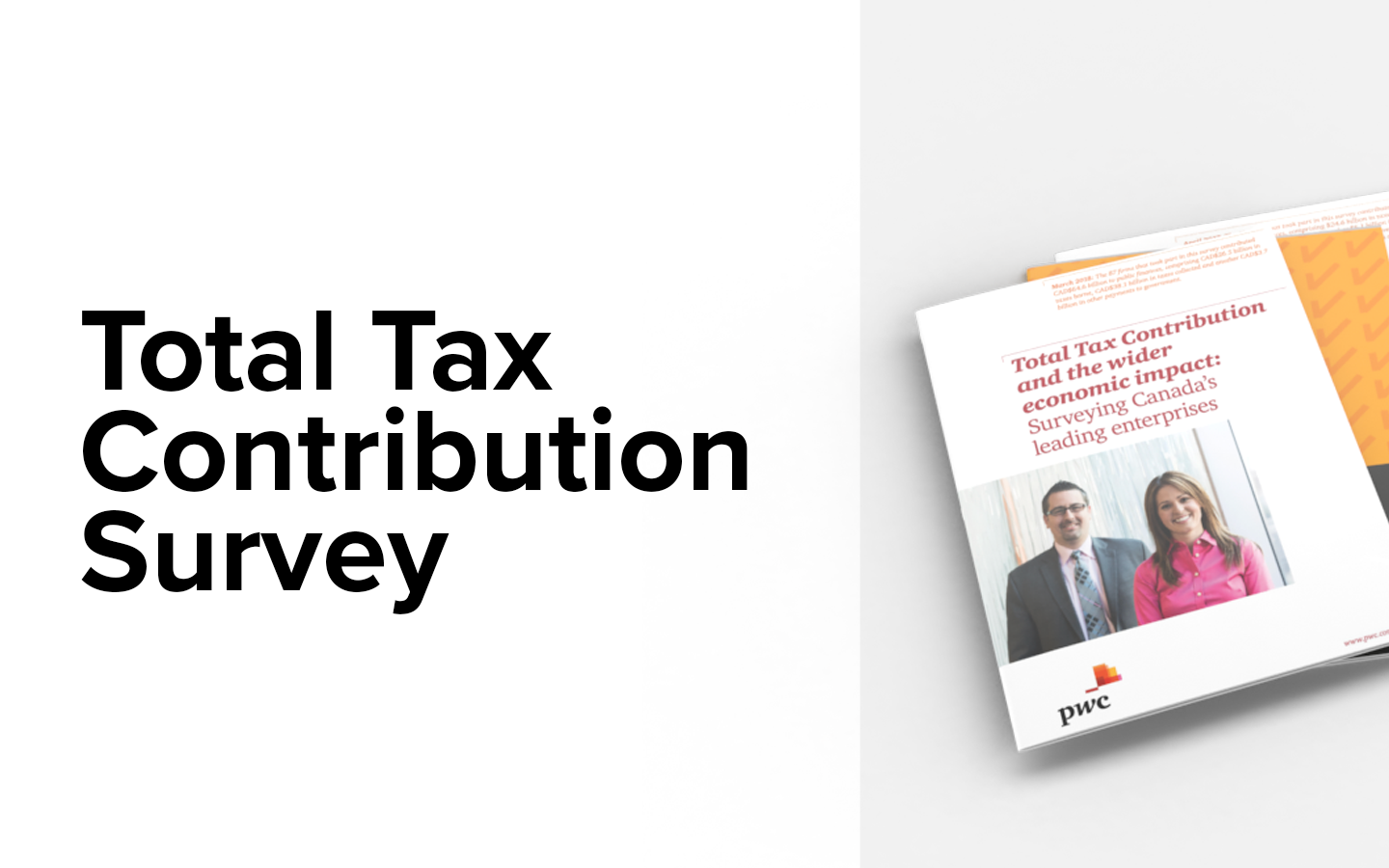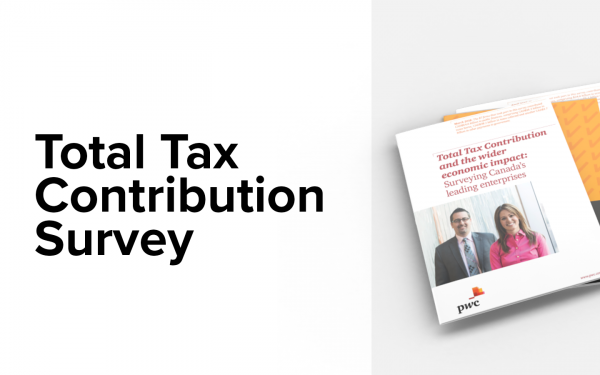Third Annual Total Tax Contribution Survey
Surveying Canada’s leading enterprises
Remarks
This is the third annual Total Tax Contribution survey of Business Council of Canada members. The survey collected tax data from 89 of Canada’s largest businesses from all sectors of the Canadian economy for the 2014 fiscal year. The survey demonstrates the full extent of contributions made by large businesses to Canadian public finances and employment.
The 89 Business Council of Canada members that participated in the survey
are significant taxpayers, responsible for nearly 20% of all federal corporate tax collected on business profit. The Total Tax Contribution for participants in 2014 was $68.5 billion: $41.2 billion in taxes borne and $27.3 billion in taxes collected. Participants contributed an additional $9 billion in other payments to governments.
Government takes the largest share of the total value distributed by the companies surveyed, receiving $77.5 billion. Another $75 billion went to payroll, with a large portion of that withheld and remitted to governments as payroll tax. The remaining share, $54 billion, was retained for reinvestment in the business or distributed to shareholders.
The companies surveyed are major employers, responsible for 1.1 million well-paid Canadian jobs. On average, the companies surveyed paid their employees an annual wage of nearly $65,000.
Tax on profits is only one type of contribution made to public finances. For every dollar of corporate income tax contributed, companies paid an additional $4.94, including $1.09 in non-profit type taxes and $0.70 in other payments to governments. The remaining $3.15 comprises taxes collected from customers and employees and remitted to governments.
Canadian businesses incur significant costs to comply with the Canadian tax regime. On average, survey participants employ 19 full-time equivalent staff and spend $4 million annually to ensure proper remittance of 56 different taxes and 12 other payments.
The survey data remained mostly consistent when compared to last year’s results. However, the economic headwinds facing the Canadian economy will likely be more visible in next year’s survey.
The Canadian tax system must remain internationally competitive to help create and sustain job-creating investment in Canada. Survey results provide robust data to inform dialogue about Canadian tax policy, transparency, complexity, competitiveness, and to reflect the challenges businesses face.
PwC thanks the Business Council of Canada for their continuing support of this survey.
Lincoln Shreiner, PwC Canada
Andrew Packman, PwC UK
About
Business Council of Canada
The Business Council of Canada is a not‑for‑profit, non‑partisan organization composed of the CEOs of Canada’s leading enterprises. The Council engages in an active program of research, consultation and advocacy on issues of national importance to the economic and social fabric of Canada.
Member CEOs and entrepreneurs represent all sectors of the Canadian economy. The companies they lead collectively administer $8.7 trillion in assets, have annual revenues in excess of $1.1 trillion, and are responsible for the vast majority of Canada’s exports, business investment, private‑sector research and development, and employer-sponsored education and training.
PwC
PwC Canada helps organizations and individuals create the value they’re looking for. More than 6,700 partners and staff in offices across the country are committed to delivering quality in assurance, tax, consulting and deals services. PwC Canada is a member of the PwC network of firms with more than 236,000 people in 158 countries.
Total Tax Contribution
The Total Tax Contribution methodology identifies taxes borne and taxes collected. Taxes borne by a company are a cost to the company and reflected in its financial results, e.g. federal and provincial corporate income (profit) tax and irrecoverable sales taxes.
Taxes collected are those generated by a company’s operations, but which do not affect its results, e.g. payroll taxes withheld from employees and remitted and GST/HST collected from customers and remitted.
We identified 68 business taxes and other payments to governments in this survey under the Total Tax Contribution methodology. Taxes are categorized into five tax bases, i.e. profit taxes, production taxes, employment taxes, property taxes and environmental taxes.











